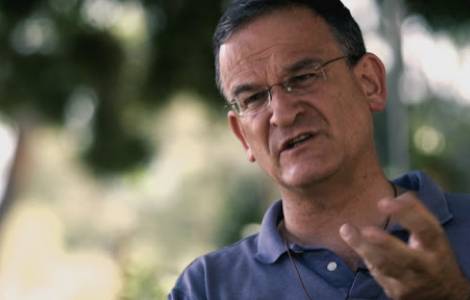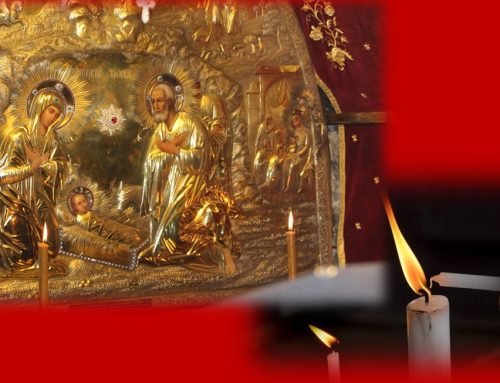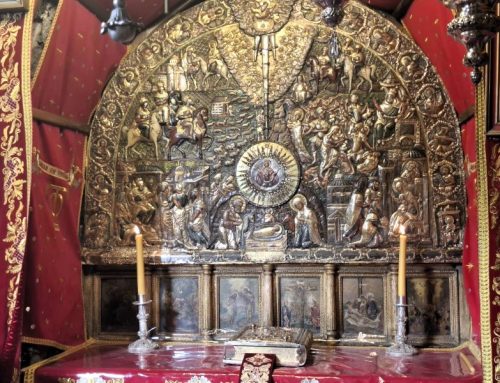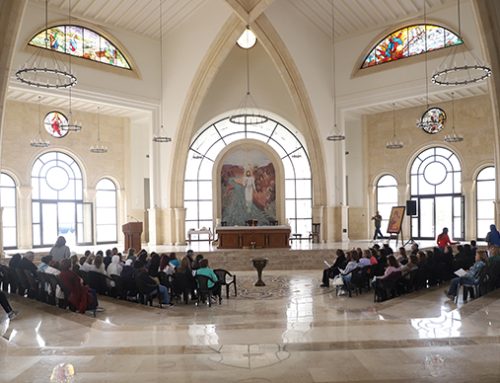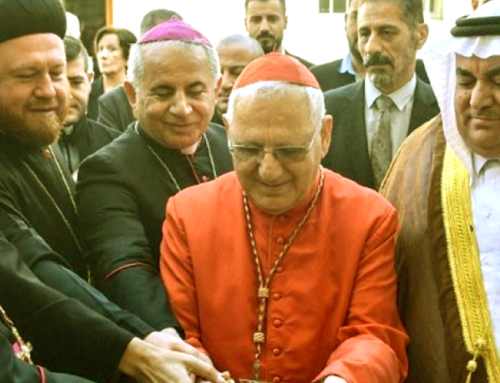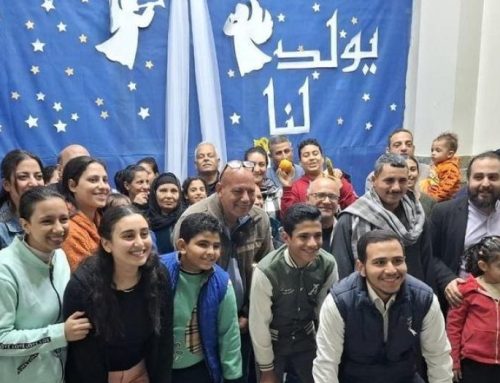Jerusalem – The renewed atrocities that are spreading death and pain in the land of Jesus have deep roots. And the catastrophe is also fueled by the toxic mix of “politics based on extremist nationalism, explained as religious fervor, both in Israel and Palestine.” This is emphasized by Father David Neuhaus, an Israeli Jesuit and professor of Sacred Scripture, in an interview with Fides. Born in South Africa to German-Jewish parents who fled Germany in the 1930s, he was also in the past Patriarchal Vicar for the Hebrew-speaking Catholics and for the Pastoral Among Migrants.
Father David, The road taken by the new tragedy in the Holy Land is spreading death and pain. But in all of this, does the chosen military solution, the idea of militarily “eradicating” Hamas, really have any logic? Or are there other factors that drive the choices?
DAVID NEUHAUS: Pope Francis said at the beginning of this round of violence: “War is a defeat! Every war is a defeat! Let us pray that there be peace in Israel and in Palestine” (Angelus, 8.10.2023). It is perhaps a mistake to think of logic in the military option. It seems an emotional reaction to the shock of October 7: 1400 men, women and children murdered and 250 kidnapped. The loss of so many lives feeds a desire for revenge. The attack exploded some fundamental myths. Firstly, the Israeli army is supposedly invincible; how did hundreds of militants break through the border? Secondly, Jews were supposed to have found a secure homeland; how come a massacre could happen here? Intense sorrow for the loss of loved ones, anxiety and frustration for the kidnapped, mixed with rage that the attack actually happened.
The military option has given rise to the mindset that accompanies war. Firstly, we fight until victory! What does victory mean in this case? Eradicating Hamas? But this has been translated operationally into destroying Gaza, killing thousands, wounding tens of thousands, men, women and children, destroying the city and its environs. The other side is seen as evil incarnate. Israeli journalist Alon Goldstein wrote, “As terrible as it is, it is also that simple; throughout each generation, there are those aiming to annihilate us because we are Jews. Now we face despicable creatures, reincarnated Nazis, Amalek… Israel must not stop, blink, or doubt and must listen to no one, but the eyes of our children, grandchildren and great-grandchildren… We must strike the Arab enemy with a force that will bring it to its knees, hurt each and every family….”
Of course, there are also other factors. More than 80% of Israelis blame Netanyahu for the glaring failures that allowed the October 7 attack to take place. Knowing his career is ended, he has little interest in ending the war. The war also provides a cover for moves in the West Bank to promote Jewish presence and push the Palestinians off their land.
Diplomatic actors are now going back to the “two-State” formula and trying to re-attribute credit and political weight to Fatah and Abu Mazen. But is this prospect still open and possible?
NEUHAUS: It should be remembered that the United Nations in 1947 decided on the partition of Palestine into two states, a Jewish one and a Palestinian one. The legitimacy of the State of Israel is predicated on the establishment of a Palestinian state. However, the Palestinian state was never established. Today 2 million Palestinians are second-class citizens inside Israel, more than 5 million are living in territories that were occupied by Israel after the 1967 War. More than half the Palestinian people live in exile, outside of historic Palestine. There are two peoples but only one state.
In the 1990s, Israelis and Palestinians seemed to reach a compromise. Palestinian leadership in exile, mostly Fatah, moved back to a Palestine that was taking form in the West Bank and Gaza Strip. However, Israel continued to build settlements, controlling most of the land. The Palestinian Authority was confined to heavily populated areas. In 2005, Israel withdrew from the Gaza Strip unilaterally, a densely over-populated area, almost 70% of which are refugees driven out of the State of Israel in 1948. The misery of Gaza was a breeding ground for extremism and Hamas took over the Strip in 2007. Israel imposed a siege on Gaza in 2007, turning it into what has been termed “an open-air prison”. Sporadic wars broke out in 2008, 2012, 2014 and 2021.
Hamas has expressed vociferous opposition to the two states solution as have extremist Jewish groups. However, it has been Netanyahu who actively torpedoed the two-state solution since the 1990s. In his present government are those who call for the transfer of Palestinians beyond the borders, refusing to recognize that they are a people. During this latest round of hostilities, an Israeli ministry has worked on a plan to relocate hundreds of thousands of Palestinians from Gaza to Sinai Peninsula, ruled by Egypt.
Alongside this hardline position, the Palestinian Authority, totally dependent on Israel’s goodwill, has sunk into corruption and mismanagement. Its resurrection after so many years of whittling away at the two-state solution and the decay of the PA itself, might be wishful thinking.
In the new tragedy, how do you evaluate the words and works of the local Churches and above all the words of Pope Francis?
NEUHAUS: Free of the constraints of political interests, the Church can be prophetic, reminding all that every human being, whether Hamas militant or Zionist settler, is created in the image of God. The Church can afford to be “naïve” and promote the belief that tomorrow can be different from today, that the mistakes of yesterday do not need to condition tomorrow. In a letter addressed to the faithful on October 24, 2023, Cardinal Pizzaballa, Latin Patriarch of Jerusalem, wrote: “To have the courage of love and peace here, today, means not allowing hatred, revenge, anger and pain to occupy all the space of our hearts, of our speech, of our thinking (…) our words must be creative, lifegiving, they must give perspective and open horizons”.
In her words, the Church can unlock new horizons. In the Holy Land, in Israel and in Palestine, in its institutions, its schools, hospitals, orphanages and homes, the Church serves everyone, Israeli and Palestinian.
Furthermore, the Church has been speaking a sane discourse on Israel/Palestine since the 1920s when it questioned promoting Jewish ethnocentricity in Palestine. The Church must retain this important role. This includes both denouncing the terrorism of Hamas and the underlying cause of instability in the region, as Cardinal Pizzaballa did in his letter to the faithful, “It is only by ending decades of occupation and its tragic consequences, as well as giving a clear and secure national perspective to the Palestinian people that a serious peace process can begin. Unless this problem is solved at its root, there will never be the stability we all hope for. (…) We owe it to the many victims of these days and to those of years past. We do not have the right to leave this task to others”.
The Haaretz Editorial of November 6 (fire Israel Far Right) “Messianic and Kahanist far right” which now enjoys great power in Israel and in the Israeli government, and looks at this war as a chance, an opportunity. How strong is this factor in the war scenario and in the individual choices of the Israeli government?
NEUHAUS: Messianic delusions have plagued Zionism since its establishment. The Jewish ultra-Orthodox opposition to Zionism pointed this out right from the beginning. The particularly toxic mix of ethnocentric nationalism with religion and Biblical fundamentalism came to the fore after the 1967 War. Ignoring international law and the rights of the indigenous Palestinian population, settlers moved into Biblical cities recently conquered like Hebron and Nablus. For them, these areas were more precious than Tel Aviv or Haifa. They sensed a divine mandate to colonize them. Their discourse became more racist, their actions more violent. Palestinian resistance was crushed by an army that seldom reacted to settler violence, even when it endangered the army itself.
The Israeli occupation of East Jerusalem provided these messianic groups with a particular focus. The attempt to impose a Jewish presence within the Haram al-Sharif, the third holiest place in Islam. Referring to it as the Temple Mount, Jewish groups have demanded not only to pray there but to cleanse it of the non-Jewish presence. Groups began to plan the building of a Third Temple, to study how to sacrifice like in the Old Testament. More and more Israelis have been entering the Haram to pray under heavy police protection and faced with strident Palestinian protest.
According to these groups, Palestinians could only remain in the land of Israel if they recognized Jewish hegemony. In the present Israeli government, leaders of these groups now function as Israeli ministers, controlling key resources. Politics based upon extremist nationalism explained as religious ardor, both in Israel and Palestine, constitute the strongest opposition to any kind of resolution to the conflict.
by Gianni Valente | Agenzia Fides

